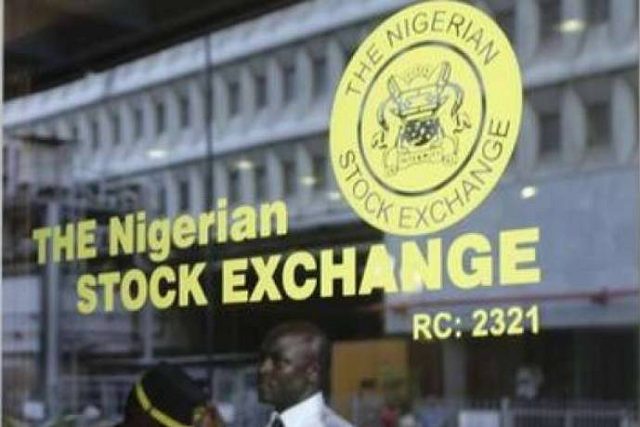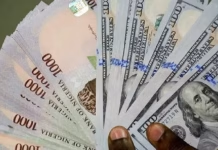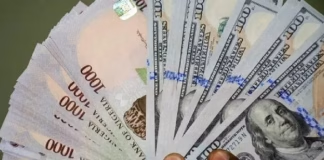The Nigerian stock market year-to-date (YTD) performance turned positive last Friday after almost seven months of being negative as cheap valuations of equities and low yields in the fixed-income markets continued to attract investors to the local bourse.
After recording a decline in 2019, the market had opened for 2020 with positive performance that lasted till February 26 before the bears took over control. And the market value has remained below its year’s opening threshold.
However, the value, climbed above the year’s opening last Friday with the Nigerian Stock Exchange (NSE) All-Share Index rising to at 26,985.77, showing a growth of 0.54 per cent compared to 26,842.07 at the beginning of the year.
Similarly, the market capitalisation of equities ended with N14.105 trillion, showing a faster growth of 8.8 per cent as against the opening value of N12.968 trillion.
The performance indicates that the Nigerian market has wiped off the losses recorded between March and September and are now showing growth.
According to market operators and analysts, the positive tilt in the market stemmed from investors’ continued favourable reaction to the cut in Monetary Policy Rate (MPR) by the Central Bank of Nigeria (CBN)’ Monetary Policy Committee (MPC), purchase of undervalued stocks and end of year portfolio rebalancing.
“Following the payment of interim dividends, investors are positioning in fundamentally sound counters ahead of third quarter (Q3) earnings reports. Also, end of month portfolio rebalancing contributed to the positive tilt of the market.
“We expect sentiment to remain positive in the coming week, supported by cheap valuations of equities and low yields in the fixed-income markets. However, we anticipate that profit-taking will puncture the current gaining streak,” analysts at Greenwich Research said.
An analysis of the market recovery showed that after ending first quarter (Q1) with a loss of 20.6 percent, it appreciated by 14 percent in the second quarter (Q2).
It consolidated on the growth in the third quarter (Q3) gaining 9.6 percent. Specifically, the NSE ASI rose from 24,479.22 to 26,831.76, while market capitalization grew from N12.769 trillion to N14.052 trillion within Q3.
Market operators had attributed the growth in the Q3 to the gradual opening of the economy after months of lockdown due to COVID-19. They also said reactions to half year’s financial results of companies spurred demand for stocks in the period.
For instance, Chairman, Association of Securities Dealing Houses of Nigeria (ASHON), Chief Onyenwechukwu Ezeagu, said the gradual easing off of the lockdown, the gradual retuning of active economic agents and the fact that some of the results of quoted companies for the second quarter(Q2) were positive signalling impact that does not advance the gloomy predictions of doomsday advocates.
“The various cash injections following the COVID-19 palliative by governments and donor agencies helped to give impetus to the economy and by extension and vigour to the capital market. With the reintroduction of FX window options by the Central Bank of Nigeria (CBN), it is expected that the market will continue in its recovery trajectory,” Ezeagu said.
Also commenting, Group Managing Director, Emerging Africa Capital Group, Mrs. Oluwatoyin Sanni, said: “In August, investors expressed their interest in defensive and growth stocks with strong potential for future growth irrespective of the economic slowdown. In particular, demand for manufacturing and banking stocks helped the benchmark ASI to close higher. The positive momentum and sentiment towards companies that pay interim dividends and repositioning in the consumer and industrial goods segments kept the market on an upward.”
In the same vein, Head of Research, United Capital Plc, Mr. Wale Olusi, said
“Despite uncertainties in the horizon, the uptrend in the market is driven by cheap market valuation, especially in oil and gas names. Expectations for the yet to be released results of tier 1 banks as investors position ahead of interim dividend payment. Lastly, sustained reduction in yields on Treasury Bills which continues to approach one per cent, account for the interest in the stock market as investors opt for riskier assets to make alpha returns,” he said.
While the above factors were working in favour of the stock market, the cut in the MPR further boosted investors’ shift as they swooped on equities with the hope of reaping higher returns.
This helped to sustain the positive performance till the end of Q3 and when trading resumed on October 2, the market posted a gain, which helped to lift the market to positive territory in terms of YTD performance.
Speaking on the swing to positive territory, Chief Research Officer, Investata Consulting Limited, Mr. Ambrose Omordion, said the nation’s equity market turned positive over the past week to extend the bullish run for two consecutive weeks and breakout the first major resistance level on a strong positive sentiment for high-flyer and growth stocks ahead of earnings reporting season.
According to him, the market rally and strong recovery so far are as a result of increasing interest of smart money which comprises foreign players, institutional investors, fund manager, pension fund administrators, high net worth individual and retail investors that are taking advantage of circular flow funds as low rate and yields environment are pushing funds to equity assets especially the blue-chip companies and others.
“Considering the strong market fundamentals in form of liquidity, low valuation as represented by the prevailing attractive price-earnings ratio that is below 15x, positive sentiment and continue sector rotation. Coupled with the high margin safety among the high dividend-paying stocks. The COVID-19 market rally has naturally ignored all the negative economic data ranging from August inflation that stood at 13.22 per cent, Q2 negative gross domestic product (GDP) of 6.1 per cent and industrial output below 50 points as of September Purchasing Manager index contracted to 46.9 points from 48.5 points in August,” Omordion said.
Source: THISDAY














